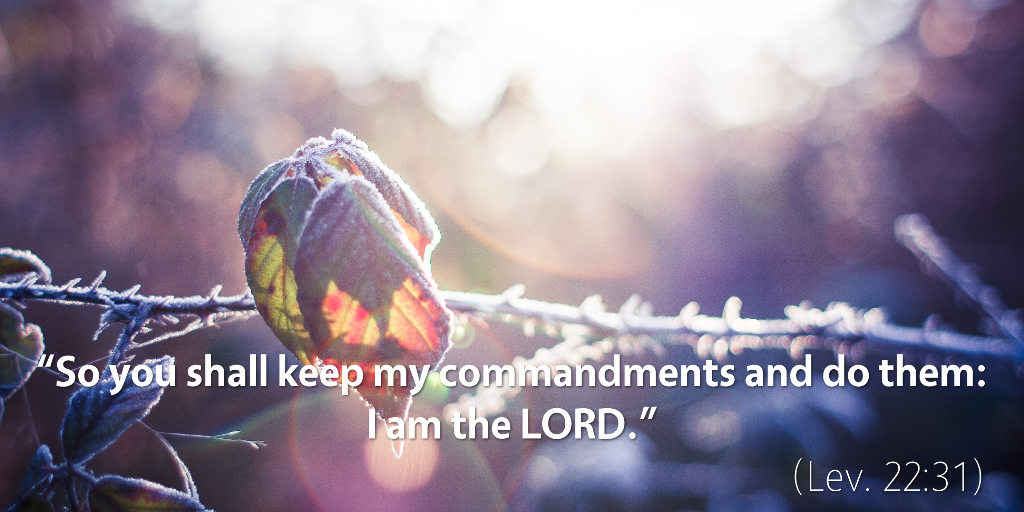Bible Readings for April 18th
Leviticus 22 | Psalms 28–29 | Ecclesiastes 5 | 2 Timothy 1
Leviticus 22 continues the theme from Leviticus 21, which is that the priests were held to a higher standard of holiness because of the fact that they served in the tabernacle, the holy place where God himself dwelt. So, they were to take measures above and beyond what normal Israelites had to do in order to avoid coming into contact with anything at all that might render them unclean.
But in Leviticus 22:1–9, Yahweh lays out a few more provisions, and these provisions are no longer given in excess of what normal Israelites had to do—all of the requirements in Leviticus 22:1–9 can be tied back to what Yahweh has already said to all Israelites about the level of cleanness required to remain within the camp. First, any priest with the skin diseases mentioned in Leviticus 13 was disqualified until he was made clean according to the provisions of Leviticus 14 (Lev. 22:4). Second, any priest who did touch the dead or who had a bodily emission of semen was unclean until the evening (Lev. 22:4–6), according to the provisions of Leviticus 15. Third, priests were not allowed to eat the unclean foods mentioned in Leviticus 11.
The only difference for uncleanness among the priests, then, is that the stakes were higher. Any priest who served in the tabernacle or ate of the holy foods in uncleanness would be cut off from Yahweh’s presence (Lev. 22:3) or die (Lev. 22:9).
The second half of Leviticus 22 focuses not on the priests themselves but on the sacrifices offered. Just as the priests were not allowed to serve if they had any physical blemish, so also any sacrifice with a blemish that an Israelite brought would not be accepted (Lev. 22:19, 20, 21, 23, 25, 29), although different kinds of sacrifices had different requirements for what was acceptable (e.g., Lev. 22:23).
Now, because Jesus has come as our great high priest and as our once-for-all sacrifice, these priestly requirements and sacrificial laws do not apply directly to us anymore. Still, these laws are incredibly important for developing an appropriate theology of God’s holiness.
Many times, we are tempted to abuse and presume upon God’s grace, trying to downplay his holiness to the point that it vanishes away, but the book of Leviticus challenges that thinking. The fact that we don’t live by the same statutes and rules doesn’t mean that God is any less holy—it simply means that God has shown us far more grace.
And if our holy God has shown us such overflowing, abundant grace, what excuse do we have for being careless and sloppy as we approach him in our worship? We may not be under the law, but shouldn’t our gratitude for God’s holy grace drive us to more reverence, not less?
Podcast: Play in new window | Download (5.2MB) | Embed
Subscribe: Apple Podcasts | RSS | More

Scripture quotations are from The Holy Bible, English Standard Version copyright © 2001 by Crossway Bibles, a division of Good News Publishers. Used by permission. All rights reserved.


